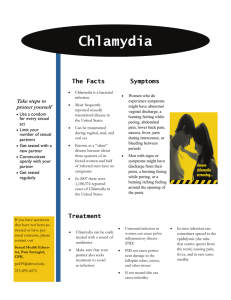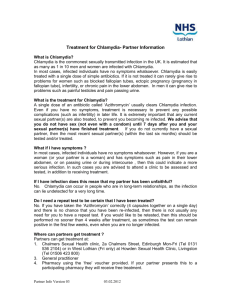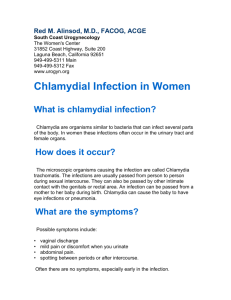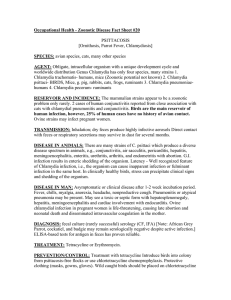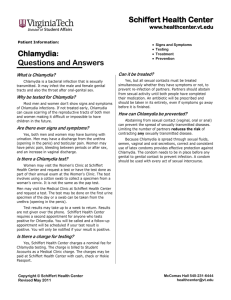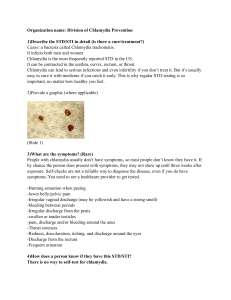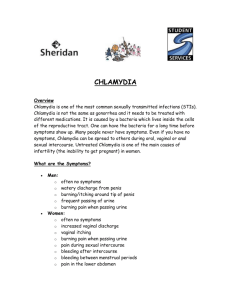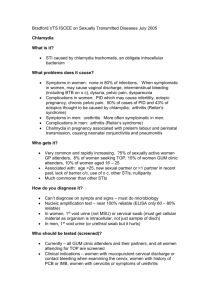Final Chlamydia leaflet
advertisement
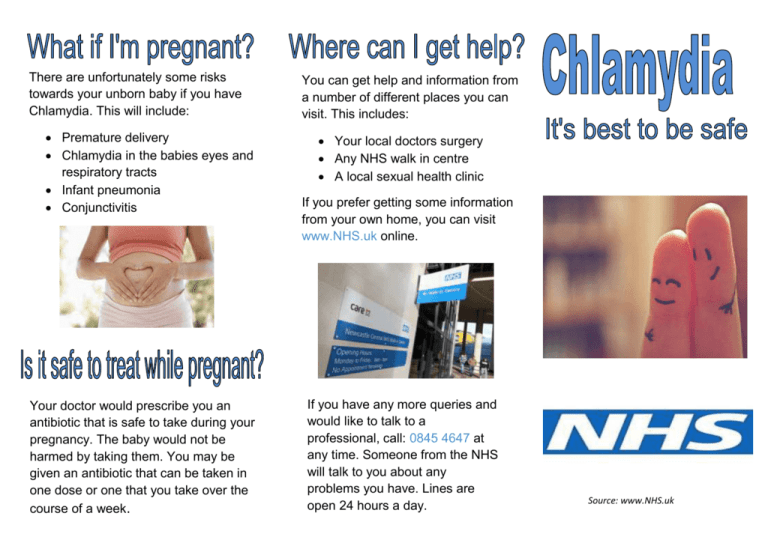
There are unfortunately some risks towards your unborn baby if you have Chlamydia. This will include: Premature delivery Chlamydia in the babies eyes and respiratory tracts Infant pneumonia Conjunctivitis Your doctor would prescribe you an antibiotic that is safe to take during your pregnancy. The baby would not be harmed by taking them. You may be given an antibiotic that can be taken in one dose or one that you take over the course of a week. You can get help and information from a number of different places you can visit. This includes: Your local doctors surgery Any NHS walk in centre A local sexual health clinic If you prefer getting some information from your own home, you can visit www.NHS.uk online. If you have any more queries and would like to talk to a professional, call: 0845 4647 at any time. Someone from the NHS will talk to you about any problems you have. Lines are open 24 hours a day. Source: www.NHS.uk Genital chlamydia is the most common bacterial sexually Chlamydia is an(STI) infection transmitted infection in the UK,caused being mostby a common in men and women 25. bacterium known as under ‘Chlamydia trachomatis’. This bacterium is found in semen and vaginal fluids and is passed on through unprotected sex. Chlamydia is also known as ‘the silent infection’. This is because it can often be difficult to tell if you think you have it, as there can sometimes be a lack of noticeable symptoms. If left untreated, it can spread to other parts of your body and can cause pain in the abdomen may lead to infertility. It is advised by doctors that anyone under the age of 25 should get yearly STI tests just to be safe. Chlamydia is the most common sexually transmitted infection. It affects both men and women of any age, but is more common to those who are under 25. It is estimated that 2.8 billion people in the US alone were diagnosed with Chlamydia. You should be sure to wear a condom if you’re male or a dam if you’re female. This will stop you from contracting Chlamydia during sex. Condoms or dams should also be worn for oral sex. You and your partner can also get tested for Chlamydia beforehand if you do want unprotected sex. The symptoms for males are: Discharge from the penis Burning/itching around the genital area Pain while urinating Swelling of the testicles The symptoms for females are: Bleeding between periods and during sex Burning/itching around the genital area Pain during sex and while urinating The most common way you will be diagnosed is by a doctor asking you for a urine sample. The sample would be sent off to a lab where they would determine if you have the infection or not.
